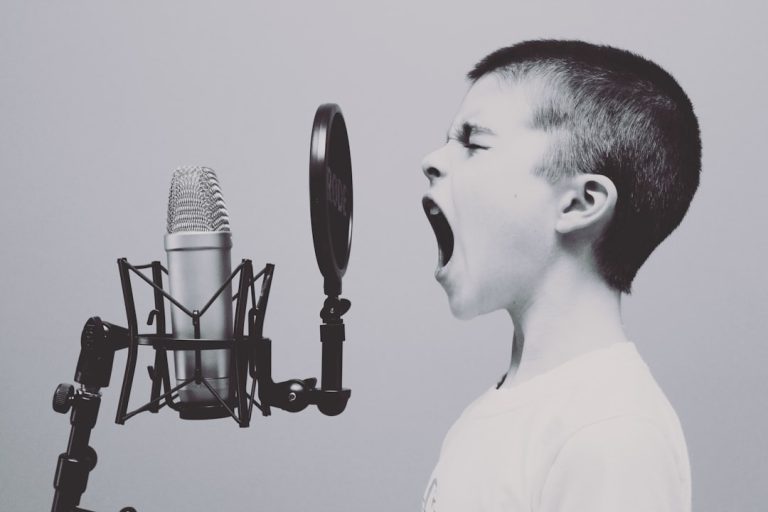
Interviewing skills are a critical component of career development, serving as a bridge between job seekers and potential employers. In an increasingly competitive job market, the ability to effectively communicate one’s qualifications and fit for a role can significantly influence hiring decisions. Mastering the art of interviewing not only enhances an individual’s chances of securing a position but also plays a vital role in professional growth.
A successful interview can lead to opportunities for advancement, networking, and personal branding, all of which are essential for long-term career success. Moreover, the interview process is often the first direct interaction between a candidate and an organization. It provides a platform for candidates to demonstrate their knowledge, skills, and cultural fit within the company.
Employers are not merely looking for technical qualifications; they seek individuals who can articulate their experiences and aspirations clearly. Therefore, honing interviewing skills is not just about preparing for a single event; it is about developing a lifelong ability to present oneself effectively in various professional contexts.
Key Takeaways
- Interviewing skills are crucial for career development as they can make or break a job opportunity.
- Preparation is key to a successful interview, including researching the company and practicing common interview questions.
- Effective communication techniques during an interview include active listening, clear articulation, and using positive language.
- Mastering non-verbal communication is important, including maintaining eye contact, using open body language, and controlling nervous habits.
- Handling difficult interview questions with confidence involves staying calm, taking a moment to think, and providing honest and thoughtful responses.
Preparing for a Successful Interview
Preparation is the cornerstone of a successful interview. Candidates should begin by thoroughly researching the company and the specific role they are applying for. Understanding the organization’s mission, values, and recent developments can provide valuable context during the interview.
This knowledge allows candidates to tailor their responses to align with the company’s goals and demonstrate genuine interest. For instance, if a candidate is interviewing for a tech company that emphasizes innovation, they might highlight their experience with cutting-edge technologies or projects that showcase their creative problem-solving abilities. In addition to researching the company, candidates should also reflect on their own experiences and how they relate to the job description.
This involves identifying key achievements and skills that are relevant to the position. Crafting a personal narrative that connects past experiences with future aspirations can create a compelling story that resonates with interviewers. Practicing responses to common interview questions can further enhance confidence and clarity during the actual interview.
Mock interviews with friends or mentors can provide constructive feedback and help candidates refine their delivery.
Effective Communication Techniques During an Interview

Effective communication during an interview goes beyond simply answering questions; it encompasses active listening, clarity of expression, and the ability to engage in meaningful dialogue. Candidates should practice active listening by paying close attention to the interviewer’s questions and comments. This not only demonstrates respect but also allows candidates to respond thoughtfully rather than reactively.
Clarity of expression is equally important. Candidates should aim to articulate their thoughts in a structured manner, using concise language that avoids jargon unless it is industry-specific and relevant.
Utilizing the STAR method (Situation, Task, Action, Result) can help candidates frame their responses effectively, ensuring they cover all necessary aspects of their experiences without rambling. Additionally, engaging in dialogue rather than delivering monologues can create a more dynamic interaction. Asking insightful questions about the role or company can demonstrate curiosity and initiative, further enhancing the candidate’s appeal.
Mastering Non-verbal Communication
| Metrics | Data |
|---|---|
| Eye Contact | 80% of the time |
| Body Language | Open and relaxed |
| Gestures | Confident and purposeful |
| Facial Expressions | Engaging and expressive |
Non-verbal communication plays a significant role in how messages are perceived during an interview. Body language, eye contact, and facial expressions can convey confidence and enthusiasm or, conversely, uncertainty and disinterest. Candidates should be mindful of their posture; sitting up straight conveys attentiveness and professionalism, while slouching may suggest disengagement.
Maintaining appropriate eye contact establishes rapport with the interviewer and signals confidence in one’s responses. Facial expressions also contribute to non-verbal communication. A genuine smile can create a welcoming atmosphere, while frowning or appearing overly serious may create barriers.
Candidates should practice being aware of their expressions throughout the interview process, ensuring they reflect positivity and engagement. Additionally, gestures can enhance communication when used appropriately; however, excessive or distracting movements can detract from the message being conveyed. Striking a balance between expressive gestures and controlled movements is key to mastering non-verbal communication.
Handling Difficult Interview Questions with Confidence
Difficult interview questions are often designed to assess a candidate’s problem-solving abilities and resilience under pressure. Approaching these questions with confidence requires preparation and a strategic mindset. Candidates should anticipate challenging questions such as “What is your greatest weakness?” or “Describe a time you failed.” Instead of viewing these inquiries as traps, they should be seen as opportunities to showcase self-awareness and growth.
When faced with tough questions, candidates can employ techniques such as reframing or pivoting their responses. For instance, when discussing weaknesses, it is beneficial to mention an area for improvement while simultaneously highlighting steps taken to address it.
Additionally, practicing responses to difficult questions can help candidates articulate their thoughts more clearly during the actual interview, reducing anxiety and increasing confidence.
Showcasing Your Skills and Experience

Effectively showcasing skills and experience during an interview is crucial for making a lasting impression on potential employers. Candidates should prepare specific examples that illustrate their competencies in action. Rather than simply stating qualifications or skills on a resume, narrating stories that highlight achievements can create a more vivid picture of one’s capabilities.
For instance, instead of saying “I am a strong leader,” a candidate might recount a situation where they successfully led a team through a challenging project, detailing the strategies employed and the positive outcomes achieved. Additionally, aligning skills with the job requirements is essential for demonstrating fit. Candidates should carefully review the job description and identify key competencies sought by the employer.
By tailoring examples to match these requirements, candidates can effectively communicate their suitability for the role. Utilizing metrics or quantifiable results when discussing past experiences can further enhance credibility; for example, stating “I increased sales by 20% within six months” provides concrete evidence of success.
Building a Positive Rapport with the Interviewer
Establishing rapport with the interviewer can significantly influence the overall impression made during an interview. Building a connection involves finding common ground and demonstrating genuine interest in both the role and the interviewer’s perspective. Candidates can initiate small talk at the beginning of the interview or reference shared interests discovered during research about the company or interviewer’s background.
Active engagement during the conversation is key to fostering rapport. Candidates should be attentive to verbal cues from the interviewer and respond accordingly, creating a more interactive dialogue rather than a one-sided exchange. Additionally, expressing appreciation for the interviewer’s insights or experiences can create a positive atmosphere.
Acknowledging shared values or goals can also strengthen this connection; for instance, if both parties are passionate about community service, referencing this shared interest can enhance rapport.
Following up After the Interview
The follow-up process after an interview is often overlooked but serves as an important opportunity to reinforce interest in the position and express gratitude for the interviewer’s time. Sending a personalized thank-you email within 24 hours of the interview demonstrates professionalism and appreciation. In this message, candidates should reference specific points discussed during the interview to remind the interviewer of their conversation and reiterate enthusiasm for the role.
Additionally, following up provides an opportunity to address any points that may not have been fully covered during the interview or to clarify any responses that may have been unclear. This proactive approach not only keeps candidates top-of-mind but also showcases their commitment to effective communication and professionalism. Ultimately, thoughtful follow-up can leave a lasting impression that may influence hiring decisions positively, reinforcing the candidate’s suitability for the position while maintaining open lines of communication with potential employers.
If you are interested in learning more about career soft skills and how they can impact your job search, check out the article “Top 10 Soft Skills Employers Are Looking For” on Careers in the USA. This article provides valuable insights into the soft skills that are highly valued by employers and can help you stand out in interviews.
FAQs
What are career soft skills?
Career soft skills are a set of personal attributes, communication abilities, and traits that enable someone to interact effectively and harmoniously with others in the workplace. These skills are essential for success in any job and can include communication, teamwork, problem-solving, adaptability, and time management.
Why are soft skills important in an interview?
Soft skills are important in an interview because they demonstrate to the employer how well you can work with others, handle challenges, and contribute to the overall success of the organization. Employers often look for candidates who possess strong soft skills in addition to technical qualifications.
What are some examples of career soft skills?
Examples of career soft skills include communication, teamwork, adaptability, problem-solving, leadership, time management, conflict resolution, and emotional intelligence. These skills are often considered essential for success in the workplace.
How can I improve my career soft skills?
You can improve your career soft skills through practice, self-awareness, and seeking feedback from others. Additionally, there are many resources available, such as books, online courses, and workshops, that can help you develop and enhance your soft skills.
How can I demonstrate my soft skills in an interview?
You can demonstrate your soft skills in an interview by providing specific examples of how you have used these skills in past work experiences. For example, you can share a story about a time when you successfully resolved a conflict with a coworker or led a team to achieve a challenging goal.






